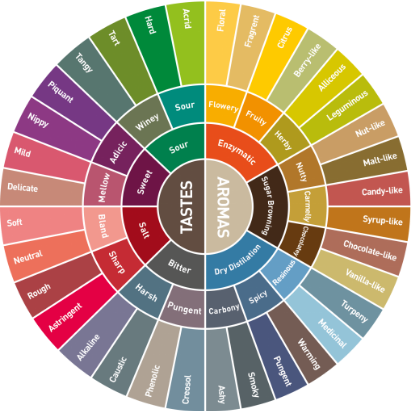What Makes a Great Employee? 15 Key Traits to Look For
When it comes to building a successful business, great employees are the backbone of any organization. These individuals possess unique characteristics that set them apart from the rest and make them valuable assets to their team. But what exactly makes a great employee? Is it their ability to problem-solve on the fly, or perhaps their unwavering dedication and reliability? In this article, we'll explore 15 key traits that employers should look for when searching for top-tier talent. So sit back, relax, and let's dive into what truly sets exceptional employees apart from the pack!
The Importance of Identifying Great Employees

Identifying great employees is crucial for the success of any business. These individuals possess unique skill sets and characteristics that can help drive your company forward. They bring fresh ideas, innovation, and creativity to the table, all while maintaining a positive attitude and strong work ethic.
Great employees are not only valuable assets on an individual level but also as part of a team. Their ability to collaborate effectively and communicate clearly with colleagues leads to improved productivity, employee satisfaction, and overall job performance.
Moreover, identifying great employees from the get-go saves time and resources in the long run. High-performing employees require less supervision than their counterparts who may need more guidance or micromanagement.
But perhaps most importantly, investing in great employees sets an example for other members of your team. It shows them that hard work pays off and encourages everyone to strive for excellence. Recognizing exceptional talent should be a top priority for employers looking to build successful teams that thrive in today's competitive landscape!
Key Traits to Look For in Great Employees

A great employee possesses a growth mindset and willingness to learn. They are not afraid of challenges, instead they view them as opportunities for personal and professional development. Such employees show eagerness to acquire new skills, knowledge, and abilities that would help them excel in their field.
In addition, great employees have a positive attitude and solutions-focused mentality. They approach problems with optimism and enthusiasm while actively seeking possible solutions rather than dwelling on the negative aspects of the situation.
An empathetic employee is also an asset to any organization. Empathy allows individuals to connect with others on a deeper level which can lead to better relationships within the workplace. Emotional intelligence is another important trait as it enables people to understand their own emotions as well as those of others.
Accountability and responsibility are fundamental traits of great employees who take ownership of their work without making excuses or blaming external factors for mistakes made.
Critical thinking skills set apart top-performing employees from average ones. The ability to analyze situations objectively while taking into account multiple perspectives enables individuals to make informed decisions based on facts rather than intuition alone.
Proactivity is critical in today's fast-paced business environment where innovation drives success. Ambitious workers who seek out new projects or ideas will always bring value beyond what was expected from them initially.
Strong communication skills are essential for effective collaboration among team members leading towards achieving common goals collectively – successful completion of tasks comes through clear communication between all parties involved!
The willingness to innovate sets exceptional performers apart by pushing boundaries creatively whilst respecting other's inputs throughout this process - creating something unique every time!
1. Growth Mindset and Willingness to Learn

Great employees possess a growth mindset and are always willing to learn. They understand that learning is a continuous process, and they embrace new challenges as opportunities to develop their skills. A growth mindset allows them to approach problems with an open mind, rather than feeling defeated at the first sign of difficulty.
Having a willingness to learn means being proactive in seeking out information or feedback from others. Great employees don't just rely on formal training or education; they take every opportunity to expand their knowledge and experiences. They are curious about different perspectives and seek out diverse sources for inspiration.
Employees with this trait also know how to apply what they have learned effectively in their work environment. They use their critical thinking skills to evaluate situations, identify areas for improvement, and implement solutions quickly.
Furthermore, great employees recognize that learning never stops - even when they achieve success in one area, there's always more to explore and discover beyond it. They continually push themselves outside of their comfort zones in order to grow both personally and professionally.
Possessing a growth mindset paired with a willingness to learn is essential for any employee looking towards long-term career success within an organization. It shows dedication towards improving oneself while strengthening the company as well through innovative ideas derived from continued learning efforts!
2. Positive Attitude and Solutions-Focused Mentality

A positive attitude and solutions-focused mentality are essential traits of a great employee. Such individuals approach challenges with enthusiasm, energy, and optimism. They view problems as opportunities to learn and grow instead of obstacles that hinder progress.
Moreover, employees with a positive attitude have the ability to motivate themselves and others in the workplace. They encourage teamwork by fostering an environment where everyone feels valued and appreciated for their contributions. These individuals also bring creative ideas to the table when faced with difficult situations.
To be solutions-oriented means focusing on finding answers rather than dwelling on problems or assigning blame for mistakes. Great employees take responsibility for their actions and work collaboratively with their colleagues to identify potential solutions.
Possessing a positive attitude coupled with being solutions-focused is not only beneficial but necessary in any work environment. Those who display these traits create a productive atmosphere that results in better outcomes across all aspects of business operations.
3. Empathy and Emotional Intelligence

Empathy and emotional intelligence are crucial traits that make a great employee stand out from the rest. People with high levels of empathy can understand different perspectives, which enable them to build better relationships with their colleagues and clients. They have a deep sense of compassion towards others and can put themselves in other people's shoes.
Emotional intelligence goes hand in hand with empathy as it allows individuals to manage their own emotions effectively while understanding how others feel. Employees who possess emotional intelligence tend to be excellent communicators, conflict resolvers, and team players. They can read social cues well, which helps them interact positively with others.
Having empathy and emotional intelligence is essential for employees working in customer service or human resources roles where they must deal with people on a daily basis. Moreover, these characteristics help foster an inclusive work culture where everyone feels valued regardless of their background or beliefs.
Possessing strong empathic abilities coupled with high emotional intelligence is critical when looking for great employees. These qualities not only enhance communication skills but also promote teamwork and create a positive work environment that leads to higher productivity levels overall.
4. Accountability and Responsibility

Accountability and responsibility are two of the most important traits that great employees possess. These people understand that they are responsible for their actions, and they own up to any mistakes or oversights without hesitation. They don't try to shift blame or avoid taking responsibility for their work.
Great employees not only take ownership of their actions but also hold themselves accountable for achieving the goals set before them. They are fully aware that success is a team effort, and they know how to take charge of their responsibilities while still being an integral part of the larger team.
These individuals demonstrate accountability by consistently meeting deadlines, producing quality work, and delivering on promises. They make sure that tasks assigned to them are completed in time with high-quality standards so as not to risk delaying other projects within the company.
Responsibility is more than just completing tasks; it's about being proactive in recognizing areas where improvement can be made within processes or workflows. Great employees go above and beyond what is expected of them because they care about doing things right – even when no one else seems to notice!
By exercising these traits consistently, great employees earn trust from colleagues and superiors alike which makes them valuable assets at any organization!
5. Critical Thinking and Big-Picture Perspective

Great employees possess the ability to think critically and see the bigger picture. They have a unique perspective that allows them to analyze complex situations and make informed decisions based on all available information.
Critical thinking involves breaking down problems into smaller parts, examining each element closely, and coming up with creative solutions. A great employee will be able to look beyond surface-level issues and identify underlying causes in order to solve problems effectively.
Having a big-picture perspective means being able to see how individual tasks fit into larger organizational goals. It requires an understanding of the company's mission, values, and strategy as well as awareness of external factors such as industry trends and competition.
Employees who can think critically while maintaining a big-picture perspective are invaluable assets to any organization. They are adept at prioritizing tasks based on their impact on overall objectives while also identifying potential roadblocks or opportunities for improvement.
In addition, great employees with these traits tend to excel in leadership roles because they can communicate their vision clearly while also rallying others around it. They inspire trust through their strategic thinking abilities which help them navigate complex challenges with ease.
Critical thinking skills combined with a big-picture perspective enable great employees not only to succeed but also thrive in today's fast-paced business world where adaptability is key!
6. Ambition and Proactivity

Ambition and proactivity are essential traits that great employees possess. Ambitious individuals have a strong desire to achieve their goals, while proactive individuals take initiative and anticipate potential challenges before they arise.
Great employees with ambition are self-motivated and driven to succeed in their personal and professional lives. They constantly seek out opportunities for growth, whether it be through learning new skills or taking on challenging projects. These individuals are not content with just meeting expectations but rather strive to exceed them.
Proactive employees take ownership of their work by identifying potential roadblocks before they happen and finding solutions to mitigate them. They don't wait for instructions but instead take the initiative to tackle tasks head-on. This trait is especially valuable in fast-paced work environments where quick thinking is necessary.
Ambition combined with proactivity creates a powerful combination that can drive progress within a company. When ambitious employees take proactive steps towards achieving goals, success becomes inevitable. It's no surprise that companies value these two traits highly when looking for top-performing candidates.
Ambition and proactivity go hand-in-hand when it comes to being a great employee. Those who embody these traits bring energy, enthusiasm, and innovation into any workplace setting - qualities that help companies thrive in today's competitive business world.
7. Strong Communication Skills

Strong communication skills are an essential trait of a great employee. Effective communication can help to build relationships, facilitate teamwork, increase productivity and resolve conflicts in the workplace. An employee with strong communication skills can convey their ideas clearly, listen actively, provide feedback constructively and negotiate effectively.
One way to demonstrate strong communication skills is by being an active listener. Active listening involves paying attention to what others are saying without interrupting or making assumptions. This helps to foster trust and understanding between colleagues.
Another important aspect of effective communication is providing constructive feedback. A great employee should be able to give and receive feedback in a respectful manner that promotes growth and improvement rather than discouragement.
In addition, clear written communication is also important for conveying information accurately and efficiently through emails, reports or other forms of documentation. It’s crucial for employees to have excellent writing abilities as well as verbal ones.
Non-verbal cues such as body language and tone of voice play a significant role in how messages are received by others. Great employees understand this dynamic well enough that they utilize it intentionally when communicating with others in order not only successfully get their message across but also ensure successful communications between colleagues overall.
Having structured thoughts around your words will show confidence which ultimately leads towards better interactions within the workspace leading towards enhanced business outcomes over time - something every company desires!
8. Teamwork and Collaboration

Teamwork and collaboration are key traits that every great employee should possess. They understand the importance of working together to achieve a common goal, and they're willing to put aside personal differences for the benefit of the team.
One important aspect of teamwork is communication. Great employees know how to communicate effectively with their colleagues, whether it's through face-to-face interactions or virtual channels like email and instant messaging. They listen actively to others' ideas and contributions, provide constructive feedback when necessary, and work towards resolving any conflicts that may arise.
Collaboration involves more than just communicating effectively; it also requires active participation in group projects. Great employees take initiative by volunteering for tasks that need attention and taking ownership of their assigned responsibilities within the team.
Moreover, they value diverse perspectives since these can lead them to discover new strategies or solutions which would have been impossible if they worked alone. Collaboration helps everyone involved learn from each other while pooling different strengths together in problem-solving efforts.
When difficult problems arise on a project, great employees remain committed despite setbacks by brainstorming ways forward with teammates instead of giving up too quickly on existing plans or getting bogged down by issues beyond their control.
In short: Great employees recognize that teamwork makes dreams work! They are passionate about building strong relationships with colleagues while working collaboratively towards achieving shared goals - an essential trait for anyone looking to thrive in today's highly competitive job market!
9. Innovative Thinking and Creativity

One of the most important traits to look for in a great employee is their ability to think outside the box. Innovative thinking and creativity can be invaluable when it comes to problem-solving, generating new ideas and driving growth.
An innovative thinker possesses a natural curiosity that drives them to explore new ways of doing things. They are able to identify opportunities and take risks where others may not see them.
Creativity involves using imagination and originality to come up with unique solutions or ideas. A creative employee can bring fresh perspectives that challenge traditional ways of thinking and unlock untapped potential within an organization.
Great employees who possess these qualities often have a strong passion for what they do. They're willing to experiment, learn from mistakes, adapt quickly, and push boundaries in order to achieve success.
Innovative thinkers also tend to be excellent collaborators as they value diverse opinions and input from others. This openness leads them towards incorporating different viewpoints into their work which ultimately results in more comprehensive solutions.
As industries continue evolving at unprecedented rates today's workplaces require adaptable individuals who can keep pace with change while remaining creative problem-solvers - great employees fill this role perfectly!
10. Professionalism and Respectfulness

Professionalism and respectfulness are two key traits that should be valued highly in any workplace. A professional employee is one who understands the importance of their role, takes it seriously, and conducts themselves accordingly. They are diligent, punctual, and reliable in carrying out their tasks.
Respectful employees understand the significance of treating others with courtesy and kindness. They show appreciation for their colleagues' contributions to the team's success and treat everyone equally regardless of rank or position.
Incorporating these traits into a company culture can lead to a more positive work environment where everyone feels valued and heard. Professionalism ensures that all work is completed efficiently while respectfulness fosters teamwork by creating an atmosphere where collaboration thrives.
Employers should seek out individuals who demonstrate professionalism through their actions such as being organized, demonstrating good time-management skills, following through on commitments, dressing appropriately for the job at hand etc., as well as showing respect towards coworkers – including listening actively when ideas are shared or providing constructive feedback without belittling others’ opinions.
By valuing these qualities in potential hires during recruitment processes or emphasizing them during performance evaluations for existing staff members , employers help create a culture that promotes loyalty among employees while also attracting top talent looking for companies with strong values.
11. Ability to Solve Problems and Make Decisions

An employee's ability to solve problems and make decisions is a crucial trait that employers seek in their workforce. In today's fast-paced business environment, companies require individuals who can think critically and come up with innovative solutions to complex challenges.
Employees who possess this vital skill set have the potential to take on leadership roles within an organization. They are capable of analyzing data, identifying issues, and developing effective strategies for solving them. Moreover, they do not shy away from taking risks when necessary and making tough decisions when required.
It is important to note that employees must be able to make informed decisions based on facts rather than emotions or personal biases. Additionally, they should be willing to consider alternative viewpoints and collaborate with others while resolving problems.
Problem-solving skills are particularly important in industries such as technology, healthcare, finance, and marketing where constant change is the norm. Employees with these skills can help companies stay competitive by adapting quickly to new trends or market conditions.
Hiring employees with excellent problem-solving abilities benefits both the employer and employee alike. Investing in training programs that enhance these skills will provide long-term benefits for organizations looking for sustained growth amidst ever-changing environments.
12. Reliability and Consistency

Reliability and consistency are two traits that can truly set a great employee apart from the rest. When an employer knows they can count on their employees to consistently produce quality work, meet deadlines, and follow through on commitments, it creates trust and confidence in the workplace.
Being reliable means showing up on time every day ready to tackle tasks with a positive attitude. It also means being dependable when things don't go as planned by adapting quickly and finding solutions instead of making excuses or giving up.
Consistency is equally important because it establishes credibility for employees' skills. Consistent performance not only ensures results but also helps build reliability between employers and clients/customers alike.
Consistency in communication is another aspect of this trait—keeping others informed about progress or changes throughout projects while adhering to any agreed-upon policies or procedures sets expectations clearly for all parties involved.
Demonstrating both reliability and consistency requires dedication to one's job duties while maintaining transparency with management regarding successes as well as areas where improvement might be needed.
13. Adaptability and Flexibility

Adaptability and flexibility are critical traits that all great employees should possess. In today's fast-paced business environment, being able to adapt quickly to changing circumstances is crucial for success.
An adaptable employee can handle unexpected challenges with ease and stay calm under pressure. They are open-minded and willing to embrace new ideas or ways of doing things, making them valuable assets in any team.
Flexibility goes hand-in-hand with adaptability. Employees who are flexible can take on different roles or tasks when needed without complaint. They're also willing to work outside their comfort zones if it benefits the organization as a whole.
A flexible employee is creative and resourceful when faced with obstacles or limitations. Instead of giving up, they find alternative solutions that get the job done effectively.
Having adaptable and flexible employees allows organizations to respond quickly to changes in their industry or market conditions. It gives them an edge over competitors who may not be as agile in adapting to change.
Therefore, employers should seek out candidates who demonstrate these skills during the hiring process and invest in training programs that cultivate these qualities among current staff members.
14. Tech-Savviness and Industry Awareness

In today’s digital age, it is essential for employees to possess tech-savvy skills and industry awareness. This trait can help them keep up with the latest trends and advancements in their field, making them valuable assets to any company.
Tech-savviness requires an understanding of various technologies and how they can be utilized to improve workflow and productivity. Employees who possess this skill set are able to adapt quickly to new software and hardware systems, saving time on training processes.
Industry awareness goes beyond just knowing about technology; it involves staying up-to-date on current events, changes in regulations or policies that could impact the business. Being aware of these factors allows employees to anticipate potential challenges or opportunities before they arise.
Having a team member who is well-versed in both tech-savviness and industry awareness can help businesses stay ahead of the competition. By leveraging emerging technologies while keeping tabs on industry developments, companies can remain innovative yet grounded in their approach.
Having employees with strong technical skills coupled with knowledge of market conditions is crucial for any organization looking to succeed long-term.
15. Attention to Detail and Time Management Skills

Attention to detail and time management skills are crucial qualities that every great employee should possess. It's not just about completing tasks on time but also ensuring that all the minute details are taken care of. This requires a high level of focus, organization and prioritization.
Employees who pay attention to detail can help prevent costly mistakes, improve efficiency and maintain customer satisfaction. They have an eye for spotting errors or inconsistencies in data, documents or processes which helps ensure accuracy and quality control.
Time management is another vital skill that great employees need to master. Those who manage their time effectively eliminate procrastination and distractions while maximizing productivity. They create schedules, prioritize tasks based on importance and urgency, set realistic goals with deadlines and track progress regularly.
Having these two skills together enhances overall effectiveness at work as it allows employees to achieve more in less time without compromising quality standards. Therefore, companies benefit greatly when they have employees who demonstrate excellent attention to detail coupled with exceptional time management skills - creating positive impacts both internally within the company culture as well as externally towards clients or customers.
How to Encourage and Develop Great Employees
Encouraging and developing great employees is a crucial aspect of building a successful company culture. It's not enough to simply identify talented individuals; you must actively work to cultivate their skills and help them reach their full potential.
One effective way to encourage employee growth is through ongoing training and development programs. This investment in your staff not only helps improve the overall skill set of your team, but it also demonstrates that you value their contributions and want to support their career advancement.
Another key factor in developing great employees is providing regular feedback. This includes both positive reinforcement for a job well done as well as constructive criticism aimed at helping individuals address areas where they can improve.
It's also important to create opportunities for collaboration and teamwork among employees. Encouraging cross-functional projects or assigning mentorship roles can help foster an environment of knowledge sharing and camaraderie, leading to increased engagement from all involved parties.
One often-overlooked aspect of encouraging employee growth is recognizing when someone may be ready for a new challenge or opportunity within the company. Promoting from within shows that you value internal talent and are interested in fostering long-term career growth for your team members.
By prioritizing ongoing training, offering regular feedback, promoting teamwork, and recognizing internal talent, you can create an environment that encourages the development of truly great employees who will continue to drive success for years to come.
Conclusion: Investing in Great Employees Pays Off
Identifying and nurturing great employees is essential for the success of any organization. By looking for key traits such as a growth mindset, positive attitude, empathy, accountability, critical thinking skills, and more, employers can build a team of individuals who are not only capable but also dedicated to achieving their goals.
Investing in great employees through training programs and development opportunities can lead to increased job satisfaction and employee retention rates. In turn, this creates a positive work environment where everyone thrives.
Remember that finding great employees takes time and effort; it's not something that happens overnight. But with patience and persistence comes the reward of building a strong team that will help take your business to new heights. So make sure you invest in your people – it pays off in the long run!
Good Tasting Coffee: How to Identify Coffee Flavors

In order to appreciate the different types of coffee available, it's important to cultivate an awareness of its unique characteristics. Let's take a look at the way coffee connoisseurs judge different cups of coffee.

Aroma
The scent of a cup of coffee has a direct influence on how we perceive its flavor. As you drink coffee try to notice if the scent is smoky, fruity, earthy, spicy, nutty or grassy.
Acidity
One of the most defining characteristics of a cup of coffee is its acidity. This is the sharp, bright tangy quality of coffee that perks up our senses. Coffee doesn’t necessarily contain just one type of acid, either. It may contain citric acid, malic acid (fruity in flavor) or even quinic acid from stale coffee, which gives us stomach aches.
Body
This is the weight, thickness and texture of coffee in your mouth. The body of different types of coffee falls on a spectrum of light- to full-bodied viscosity (thin to thick).
Flavor
This is where comparisons come in handy and there is some overlap between aroma and flavor. Your coffee might taste bitter, sweet, savory or sour with common comparisons to chocolate, wine or fruit.
Related Posts
















